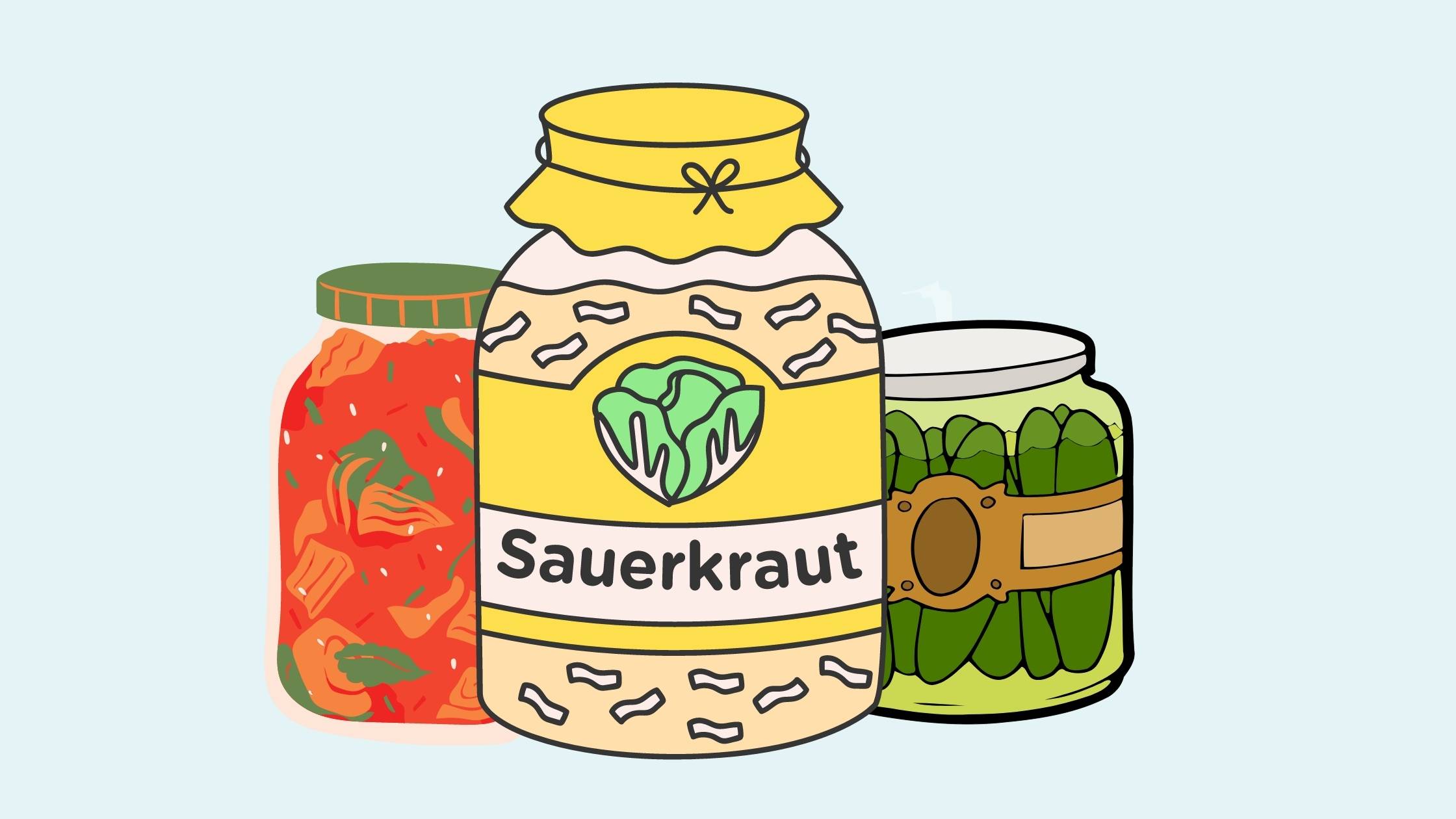Foods that promote healthy digestion are readily available in our grocery stores and farmers markets.
All of us, at some point in our lives, will have a digestive issue to deal with — bloating or gas after eating too much food or drinking too many carbonated beverages; indigestion, constipation, diarrhoea or heartburn; acid reflux disease; irritable bowel syndrome.
In this article, we will cover some foods that can promote healthy digestion by keeping our microbial populations balanced and in check. Remember: good bacteria is just as important as low fat or fibre content!
Digestive S.i.t.u.a.t.i.o.n

Residing in our digestive tract are trillions of microbes that work to break down food and absorb vitamins, minerals and water from it. These microbes also keep us healthy by fighting off viruses and harmful bacteria.
So when things go wrong inside the gastrointestinal system, our body's ability to absorb nutrients is compromised.
Poor absorption of nutrients then sets up a domino effect that can manifest in different ways such as weight gain, skin problems and general fatigue.
The types of food most likely to trigger these digestive issues are highly processed foods containing refined sugars, excess salt or gluten — the three things with the greatest negative impact on our ability to properly digest nutrients.
In addition to cutting down on processed foods, eating more live cultures, probiotics and prebiotics can help promote healthy digestion.
One of the best ways to maintain a healthy digestive system is to eat foods that contain these compounds:
1. Probiotics

Probiotics are microorganisms found in fermented foods. These include yoghurt, kefir, tempeh, miso, natto and kimchi, sauerkraut, pickles and some raw vegetables.
Probiotics increase the number of good bacteria residing in our digestive tract. Probiotic-rich foods are ideal for people with digestive issues.
They can help improve their digestion by providing an environment where healthy gut microorganisms can proliferate.
When our digestive system is healthy, we are more likely to absorb nutrients, improve the way we digest complex sugars and starches and maintain a stable blood sugar level — all of which will help us manage obesity.
Probiotics also have antimicrobial properties that can help neutralize harmful bacteria — meaning they can help prevent the spread of infectious diseases.
2. Fermented Foods

This help repopulates the gut with good bacteria and improves our overall health.
Fermented foods are a great source of beneficial bacteria to keep the digestive tract balanced.
These different foods are fermented by lactic acid-producing bacteria, which helps your body break down/absorb nutrients more efficiently.
Some examples of these foods include kimchi (a spicy Korean cabbage dish); sauerkraut (fermented cabbage) and kombucha (a fermented black tea drink commonly made at home). To boost healthy gut microbes, eat a variety of fermented foods once or twice a week.
3. Prebiotics

Some people may not be familiar with prebiotics, but they are just as important to a healthy gut as probiotics. Prebiotics are the fuel for the good bacteria already in your digestive tract (i.e., they promote a healthy microbial balance), whereas probiotics are live microbes that have proven benefits, such as improving digestion, immune function and mental health.
Prebiotic foods include chicory root; bananas; artichokes; garlic; leeks and onions. You can increase prebiotic foods in your diet by eating a variety of the foods listed above at least three times per week.
Prebiotics are also produced from resistant starches, which can be naturally found in foods like oats, beans and raw potatoes. Adding these to meals will help to feed the good microbes in your gut.
4. Fiber

Speaking of resistant starches, fibre is another important ingredient for promoting healthy digestion by keeping bad bacteria at a low level.
Fibre can be found naturally in whole grains (like barley and brown rice), legumes, root vegetables and non-starchy fruits and vegetables. You can also increase your fibre intake by eating whole grains in place of refined wheat products (i.e., white bread).
Fibre has also been shown to help people with diabetes because it slows down gastric emptying and glucose absorption, which helps stabilize blood sugar levels.
For anyone trying to keep their weight under control, fibre can also help with fullness and satiety, making it easier to stick to a healthy diet.
Total fiber intake should be between 25-38 (women-men) grams per day, spread throughout three meals.
Deeper Dive:
Super immune boosting foods that are not oranges
Turmeric Milk Benefits – 13 Interesting Benefits Your Body Will Love
Anti-Inflammatory Foods List: 13 Delicious Foods That Helps Fight Inflammation
35 Best High Fiber Foods for Digestion – Recipes Included
5. Whole Grains

Whole grains, like the kind found in whole wheat bread or steel-cut oats, are rich in fibre and essential minerals.
Eating more whole grains can help keep blood sugar levels steady — which is especially helpful for people with diabetes, those who are overweight, women at mid-life and pregnant women to name a few.
Eating whole grains can also help you thin your waistline because the fibre-rich food fills you up faster and reduces your calorie intake, which in turn helps keep blood sugar levels steady and appetite satisfied longer.
6. Spices

Spices have also been shown to help stimulate the production of digestive enzymes, which means they can help us digest foods more efficiently.
Onions, garlic and peppermint are a few examples of spices that can promote healthy digestion by stimulating our stomach acid, bile flow or pancreatic enzymes.
If you want to maximize the health benefits of your food, try adding some spice next time you prepare a meal.
7. Coffee & Tea (Caffeine-Free)

Not only do caffeinated drinks like coffee and tea contain antioxidants that are beneficial for healthy digestion, they can also help lower risk of diabetes. What's more, tea (in particular) has been shown to help prevent the growth of bad bacteria in the intestines.

Final thoughts on Foods That Promote Healthy Digestion
A healthy gut is important for good digestion, overall health and well-being. If we don't respect our microbes, they won't respect us in return! Achieving a homeostatic balance between bad bacteria and good bacteria is key to promoting a healthy gut. This balance can be influenced by our diet, specifically the foods that repopulate the gut with good bacteria (prebiotics) and promote their growth (probiotics).
It's difficult to maintain a healthy digestive system with the bad foods that are available everywhere. But you can take care of your gut by eating more of the right foods mentioned above.
The article outlined some great ideas for the kind of foods that promote healthy digestion and what you should be putting in your body so that it will help keep those trillions of microbes happy too.
Give these tips a try today! Hope this was helpful, if you have any questions or comments feel free to ask below!
Products that can help
More Resources:
Your Digestive System & How it Works
How to get more fibre into your diet-Eat well






